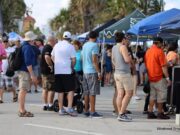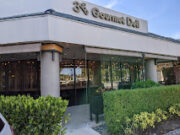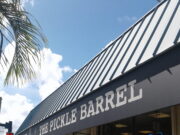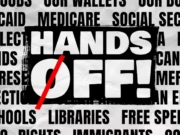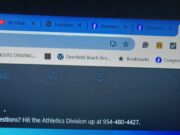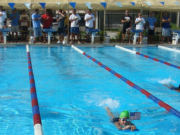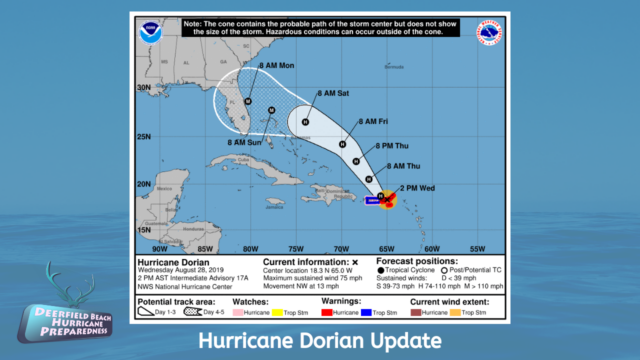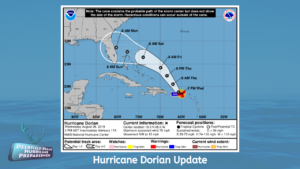
Deerfield-News.com-Deerfield Beach, Fl-As South Florida watches are you prepared for Dorian?
Local Prep Information
What Is a Hurricane?
A hurricane is a tropical cyclone with winds that have reached a continuous speed of 74 mph or more. Hurricane winds blow in a large spiral around the center of the mature cyclone known as the “eye.” A hurricane can cause heavy rains, high winds, and storm surges which can lead to flooding.
There are five types, or categories, of hurricanes. The scale of categories is called the Saffir-Simpson Hurricane Scale and it is based on wind speed.
- Category 1: Winds range from 74-95 mph
- Category 2: Winds range from 96-110 mph
- Category 3: Winds range from 111-129 mph
- Category 4: Winds range from 130-156 mph
- Category 5: Winds are more than 157 mph
How to Prepare?
Get your family and home prepared this season before severe weather strikes:
- Know where to go. If you are in an evacuation area, know the evacuation route(s) to take and have a plan on where to stay.
- Put a disaster bag together in the event you need to evacuate. This should include a flashlight, batteries, cash, first aid, medications, and copies of your critical information.
- If you are not in an evacuation area and are planning on staying in your home plan for adequate supplies in case you lose power and water for several days and can not leave due to flooding and blocked roadways.
- Make a family emergency communication plan.
- Make sure you have cash and gas: Gas stations and ATMs may not be open or have power during a storm.
- Stock up on food and supplies: Grocery stores may be closed, make sure you have supplies for at least 3-5 days.
- Bring the outdoors in: Any outdoor furniture, trash cans, and signs can blow away damaging homes and injuring people.
- Cover windows with hurricane shutters, storm panels or boards: Protect your windows from flying debris.
- Listen to local forecasts and NOAA radio: Stay up-to-date about potentially life-threatening emergencies, weather observations and forecasts.
Basic Supplies & Necessities:
Make sure your emergency kit is stocked with the items on the checklist below. If you are headed to the store download the Hurricane Kit Shopping Guide. Once you take a look at the basic items, consider what unique needs your family might have, such as supplies for pets or seniors.
After an emergency, you may need to survive on your own for several days. That means you should have enough to last for at least 72 hours.
A basic emergency supply kit should include the following recommended items:
- Water: one gallon of water per person per day
- Food: non-perishable
- Battery powered radio or hand crank radio
- Flashlight
- First aid kit
- Batteries
- Whistle to signal for help
- Moist towelettes
- Wrench or pliers to turn off utilities
- Manual can opener for food
- Cell phone with car chargers and backup battery
Garbage Do’s and Don’ts
Before
- DO take care of any substantial landscape work before hurricane season even begins. That way, there won’t be a huge need if a hurricane threat became imminent.
- DO secure any bulk that may have not been collected right before a storm.
- DON’T do landscaping work just as a hurricane is approaching. There may not be enough time for your debris to be collected, and anything left out can become dangerous during a storm.
After
- DO be patient. Your debris will be collected, but it will take some time. There will likely be a LOT out there.
- DO NOT continuously call our offices about your debris collection. This only slows down the process. All hurricane debris will get taken care of as quickly as possible.
Public Shelter Information
Staying with family and friends outside the Evacuation Zone is your best choice before heading to a public shelter. The American Red Cross will provide a place to stay in a General Population Shelter if you do not have a safe place to take shelter, no preregistration is required but preregistration is encouraged. Carry some of these supplies with you if you plan to evacuate to a shelter (download Emergency Checklist):
- Bedding such as pillows, blankets and cots
- Personal hygiene items
If you have a medical condition that requires basic medical assistance and monitoring, but does not require hospitalization, a Special Medical Needs Shelter may be fitting for you. Visit: broward.org/atrisk.
If your medical condition requires hospitalization or one-on-one care, you may consider a hospital or other medical facility.
Click here for the list and emergency shelter map.
After the Storm
If you have damage to your home:
- Check that it’s safe to go outdoors after the storm
- Survey the damage to your home
- Compare your home to these 4 Home Damage Assessment photos
- Select the level that best represents the current state of your home
- You can report your damage by phone, web site or mobile app:
- By phone: Call the Hurricane Hotline at 311 or 954-831-4000
- By web site: Click broward.org/ReportHomeDamage/
- By mobile app: You only need to select the photo that best represents the level of damage to your home since the cell phone’s location is automatically geo-coded to a map.
- Contact your insurance company: Act promptly when filing claims for damages that affect your property from a storm. Make sure you have your policy number available and make a list of the damages by documenting them with photos.
Avoid Scams
Natural disasters can bring out the best in people, as strangers reach out to help others in need. Unfortunately, the aftermath of a crisis typically also brings out many types of scams and unlicensed contractors who take advantage of those who have been victimized. If your home was damaged or destroyed by a hurricane or other disaster please be cautious.
Any repair work performed on a home or business should be completed by a licensed professional. Unlicensed contractors will often travel from out of state in an attempt to take advantage of uninformed consumers. The best way to prepare is to be proactive in selecting a properly licensed and insured contractor and to use good judgement with sales calls, door-to-door sales people, and low prices that appear too good to be true.
Here are some basic guidelines for hiring service providers:
- Don’t be rushed into signing a contract. Instead collect business cards and get written estimates for the proposed job.
- Beware of contractors that encourage you to spend a lot of money on temporary repairs. Temp repairs are usually covered as part of an insurance settlement. If you pay a large sum for a temp job, you may not have enough left over for the permanent repairs.
- Investigate the contractors track record. You can call the Better Business Bureau for help. Never give a deposit until after you have thoroughly researched their background.
- Don’t make any rash decisions about hiring someone. Be wary of door-to-door solicitions.
- Be suspicious of anyone who claims to have a FEMA endorsement. An endorsement sounds safe, but don’t let this fool you. The Federal Emergency Management Agency (FEMA) does NOT certify contractors.
- Don’t pay up front. Any contractor who asks for full payment before any work is done is a major red flag.
From- Deerfield-beach.com



